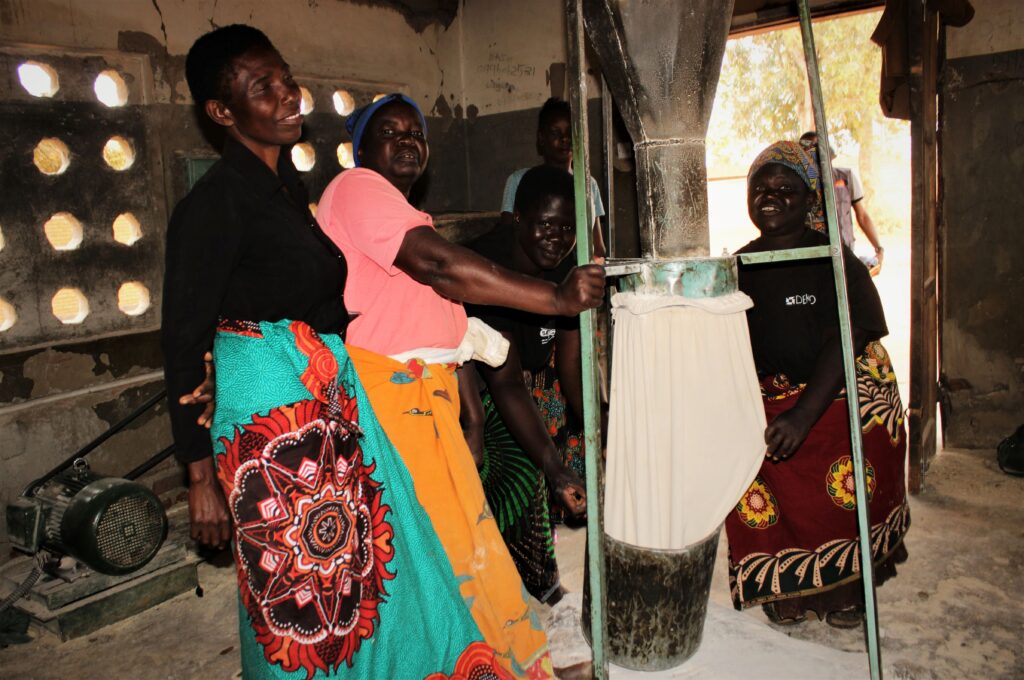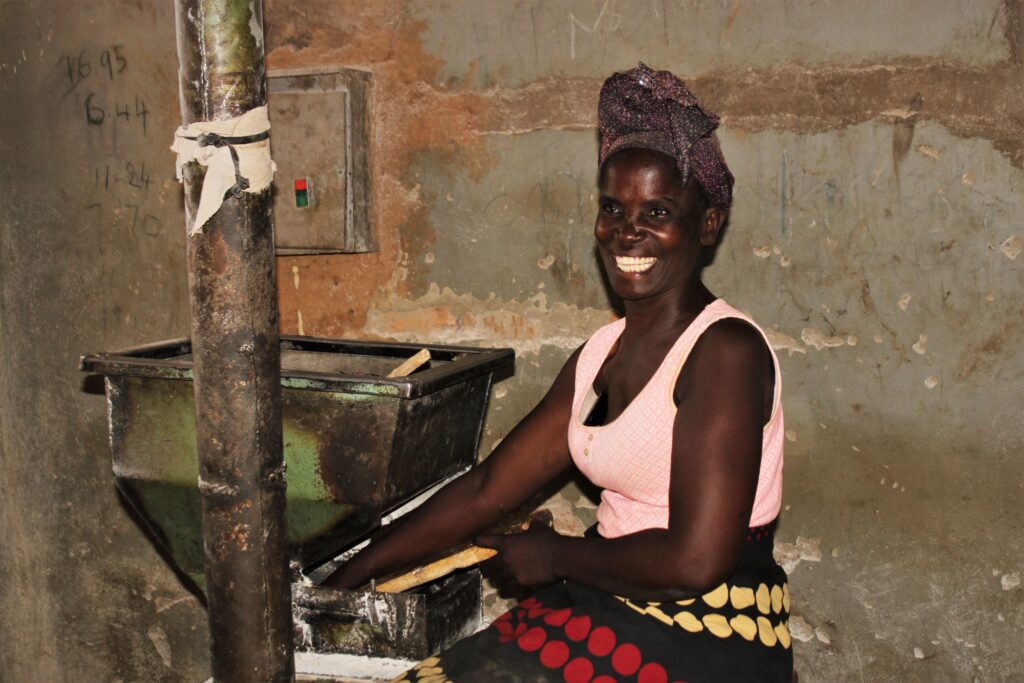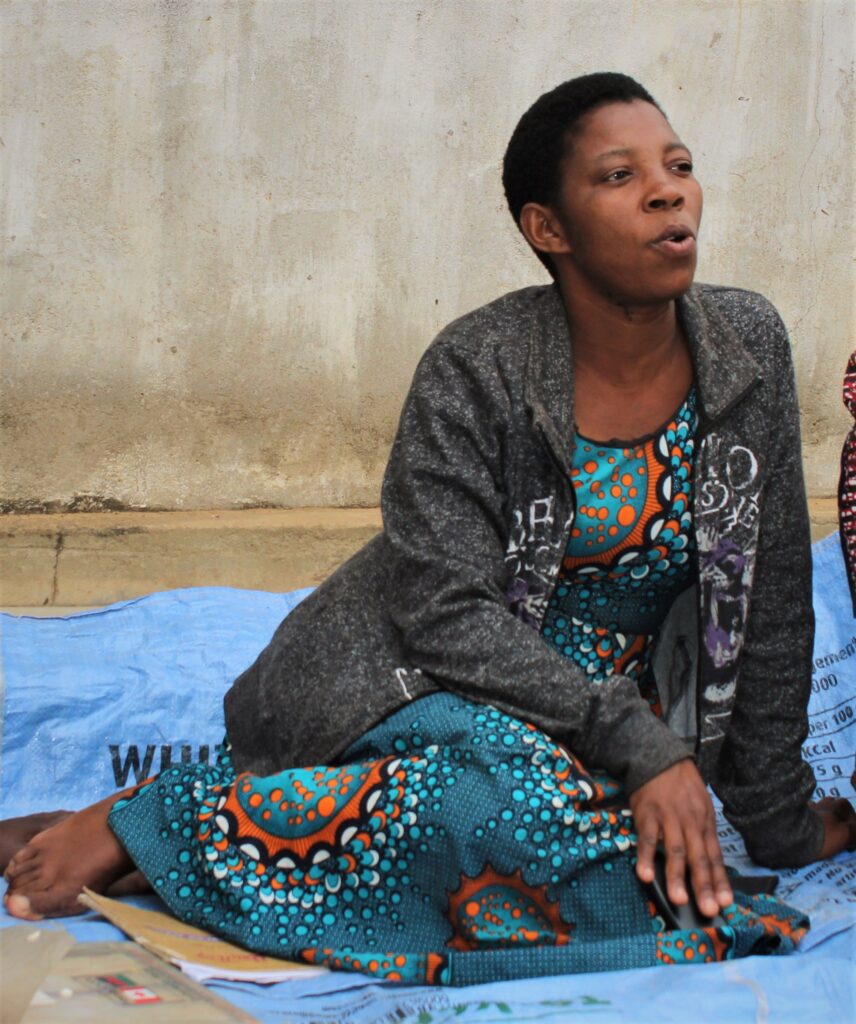By Kondwani Magombo

Lilongwe, Mana: As early as 1999, over 30 women around Kasungu Boma came together and formed a group. The women had one thing in common and it’s what brought them together: each one of them had a disability of one kind or another.
The women named their group Tiyanjane Disability Group and their common goal was to fight stigma and discrimination which individual members were facing in their respective communities.
According to the group’s chairperson, Eliza Chikafumbwa, and member, Ruth Banda, the group aimed at instilling confidence among its members and makes them prove to the world that disability is not inability.
“We started very well and our main objective was to stand up and be counted in the society so that we could have our voice heard,” explained Banda during a media tour recently.
“We pushed our way to attract sponsors so that we could venture into some entrepreneurial activity, either as a group or as individuals, to become economically independent,” she continued.
In 2005, Banda recalls, the group found a break-through when they successfully found support from the then Local Development Fund (LDF) and got a maize mill planted at the group’s Headquarters, just on the outskirts of Kasungu Boma, at Juma Village, Traditional Authority Mwase.
By this time, the group’s membership had shrunk to 20, having lost some of its members to either death or relocation.
As time passed, the group continued to lose its members until there now remained 6 of them who were later joined by 3 male members with disability, too, to bring the total membership to the present 9.
Despite the shrinking of the membership, what the group collected from the maize mill could not meet the members’ economic needs.
According to Banda, business had always been so slow that, on average, they could raise around K3,000 only per day while other maize mills around the area could raise more than double of that amount per day.

When the group conducted a small research to understand the math, they realized that by having only one type of maize mill to produce flour, they were way behind in business compared with their counterparts.
“What we discovered was that we had been losing customers to our counterparts because, unlike us, they had another mill for separating husks from the grain,” explained the group’s chair, Chikafumwa.
“So most customers, especially those who wanted to have their grain’s coat pealed before milling the grain into flour, preferred our counterparts’ services to us because they could have it all done at one place,” she continued.
The realization left the members of the group restless and they banged heads for a possibility of acquiring the second type of mill so as to make their business a one-stop centre, too.
According to Chikafumbwa, the group had, over the following years, knocked on doors of many financing institutions – government-run and private, alike – but with little success.
But the group was yet to knock on one more door, the National Economic Empowerment Fund (NEEF), and when it did, NEEF did not only open the door but embrace the group’s business idea and run with it.
“We had given up and we never thought we could get financial support from any financing institution because we had tried them all – or so we thought – until someone tipped us to try NEEF,” explained Chikafumbwa.
“From what we had heard about the institution before, we had always believed that one ought to be either politically connected, or be connected to someone with an influence up there, to get a loan,” she added.
So the group thought of giving it a try and applied for a MK2m loan which they successfully got in 2021 without any hassle, according to the chairperson.
Tiyanjane Disability Group now has the much-sought-after extra maize mill and business has dramatically picked up.
“The coming of this maize mill has transformed our lives: On a good day, we net up to MK50,000 per day unlike previously when we could only collect MK3,000 per day,” explained the chair.
At individual level, the group members are also running various small-scale businesses such as tailoring and groceries shops.
The group has completed settling the loan and they have since applied to NEEF for individual loans to boost their small scale businesses, while they continue to rake in more money from the maize mills.
According to Chikafumbwa, after settling the second loan, the group intends to apply for another loan for yet another mill.
Tiyanjane Disability Group’s dream does not end there: The Group plans to plant as many maize mills as possible, until each member owns one of their own.
“It may sound a farfetched dream but we are confident that we will be able to achieve this,” explained Chikafumbwa with startling optimism, “Our main drawback is electricity because most times of the day we have black out and we lose out business to those running their mills using diesel.”
NEEF has become a household name among women in Kasungu where various businesses have come into being, owing to loans from the Fund.
In TA Kaluluma, a group of women called Chimwemwe Women’s Club, from Joloji Village also have a lot to show for their involvement with NEEF.
Among these women is a widow and mother of 4 children, Agnes Winnie Soko, who is the Treasurer of the Club.

Soko, who lost her husband in 2018, confesses that her world ended the day she watched her husband’s remains being interred. And, then, NEEF happened.
Her initial loan from NEEF was MK250,000, which she used to start second hand clothes business and today, Soko has grown her capital thrice as much.
“I started with one bale of second-hand clothes but today I’m able to get two bales at once,” explained Soko, and she continued: “From the MK250,000 loan that I got from NEEF I now have a capital of MK780,000.”
But that is not all, Soko has also constructed and stocked a groceries shop right at her house to supply basic needs to her community.
Like most of her fellow members in Chimwemwe Women’s Club, Soko is eyeing a bigger amount for her second round of loan. She’s thinking of getting MK500,000 to top up her two businesses.
“My ambition is to buy a pickup in the end so that I can also venture into transport business to ferry goods of fellow business men and women to various markets at a fee,” explained Soko.
“With what I have managed to raise so far, I am confident that this dream will come to fruition: NEEF has come in at the right time to relieve me of the anxiety that comes with widowhood as I am now able to feed and educate my children,” concluded Soko.


